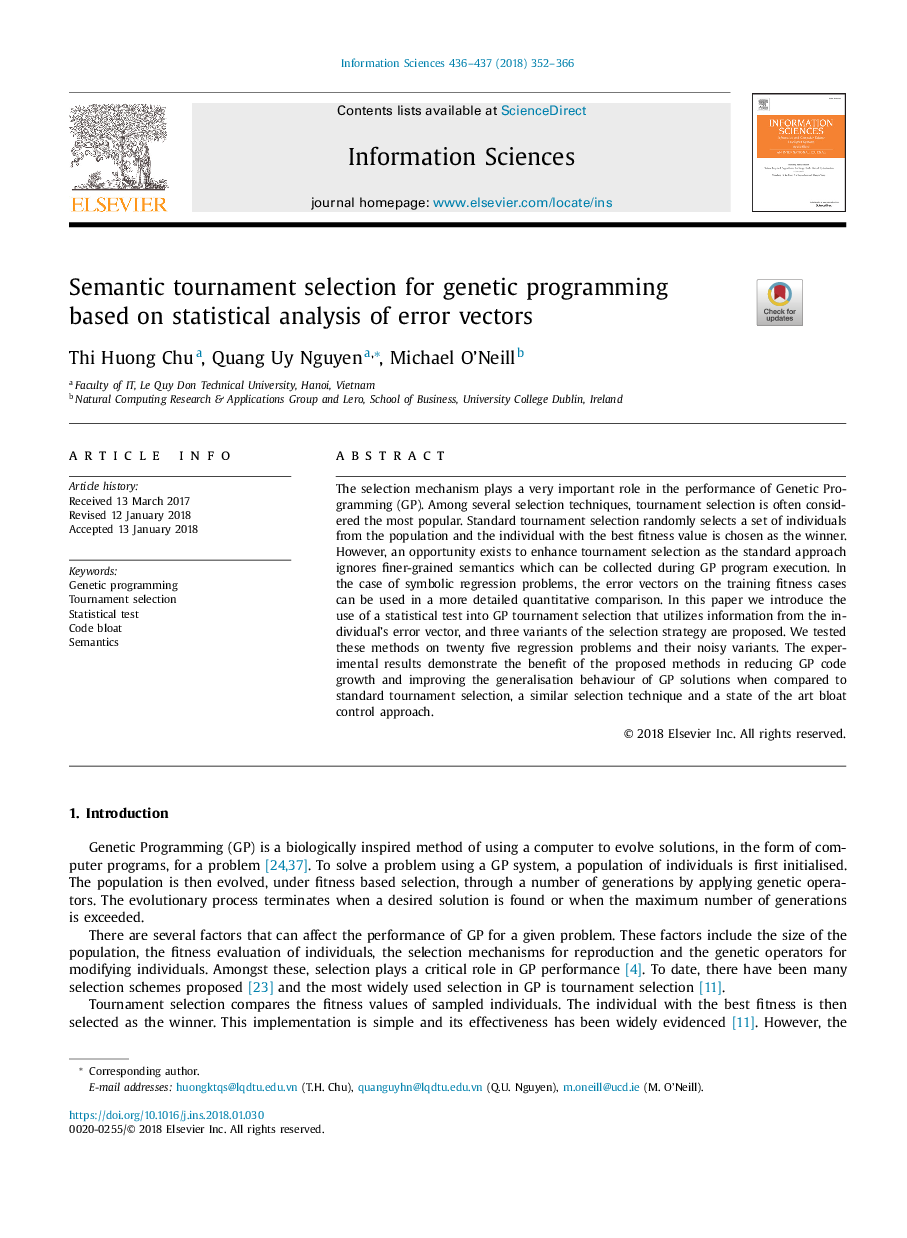ترجمه فارسی عنوان مقاله
انتخاب مسابقات معنایی برای برنامه نویسی ژنتیکی بر اساس تجزیه و تحلیل آماری از بردارهای خطا
عنوان انگلیسی
Semantic tournament selection for genetic programming based on statistical analysis of error vectors
| کد مقاله | سال انتشار | تعداد صفحات مقاله انگلیسی |
|---|---|---|
| 151323 | 2018 | 15 صفحه PDF |
منبع

Publisher : Elsevier - Science Direct (الزویر - ساینس دایرکت)
Journal : Information Sciences, Volumes 436â437, April 2018, Pages 352-366
ترجمه کلمات کلیدی
برنامه نویسی ژنتیک، انتخاب مسابقات، آزمون آماری، کد نفخ، معناشناسی،
کلمات کلیدی انگلیسی
Genetic programming; Tournament selection; Statistical test; Code bloat; Semantics;

